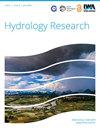How does the daily regulation hydropower station reduce the hydrological regime impact? A case study in upper Yellow River
IF 2.6
4区 环境科学与生态学
Q2 WATER RESOURCES
引用次数: 0
Abstract
The regulation of hydropower stations has profoundly altered river flow patterns. While studies have extensively assessed the impact of large or multiyear regulated hydropower stations on hydrological regimes using indicators of hydrological alteration (IHA) and range of variability approach (RVA), the impact of daily regulation hydropower stations has received comparatively less attention. This study aims to evaluate the influence of daily regulation hydropower stations on hydrological regime changes. The analysis focuses on the upper Yellow River region in China, which houses cascade hydropower stations, utilizing daily runoff data from the Guide hydrological station spanning from 1954 to 2020. The Mann–Kendall test revealed 27 of 32 IHAs with a significant trend when considering the operation of the multiyear regulated hydropower station (Longyangxia). However, this number decreased to 18 IHAs when daily regulation hydropower stations (Laxiwa and Nina) were included. Evaluation using the RVA method indicated that only 46.87% of IHAs showed high alterations from the natural regime when considering the operation of daily regulation hydropower stations, a decrease from 75.00% when solely considering Longyangxia. Findings suggest that daily regulation hydropower stations can effectively mitigate the adverse effects of multiyear regulated hydropower stations, bringing the hydrological regime closer to a natural state.日调节水电站如何减少对水文系统的影响?黄河上游案例研究
水电站的调节深刻地改变了河流的流量模式。虽然已有研究利用水文变化指标 (IHA) 和变率范围法 (RVA) 广泛评估了大型或多年调节水电站对水文过程的影响,但对日调节水电站的影响的关注相对较少。本研究旨在评估日调节水电站对水文过程变化的影响。分析以中国黄河上游地区为重点,利用贵德水文站从 1954 年到 2020 年的日径流量数据,该地区建有梯级水电站。Mann-Kendall 检验显示,考虑到多年调节水电站(龙羊峡)的运行,32 个 IHA 中有 27 个具有显著趋势。但是,如果将日调节水电站(拉西瓦水电站和尼那水电站)包括在内,这一数字则下降到 18 个 IHA。使用 RVA 方法进行的评估表明,当考虑到日调节水电站的运行时,只有 46.87% 的 IHA 与自然状态相比变化较大,比仅考虑龙羊峡时的 75.00% 有所下降。研究结果表明,日调节水电站可以有效缓解多年调节水电站的不利影响,使水文状态更接近自然状态。
本文章由计算机程序翻译,如有差异,请以英文原文为准。
求助全文
约1分钟内获得全文
求助全文
来源期刊

Hydrology Research
WATER RESOURCES-
CiteScore
5.00
自引率
7.40%
发文量
0
审稿时长
3.8 months
期刊介绍:
Hydrology Research provides international coverage on all aspects of hydrology in its widest sense, and welcomes the submission of papers from across the subject. While emphasis is placed on studies of the hydrological cycle, the Journal also covers the physics and chemistry of water. Hydrology Research is intended to be a link between basic hydrological research and the practical application of scientific results within the broad field of water management.
 求助内容:
求助内容: 应助结果提醒方式:
应助结果提醒方式:


